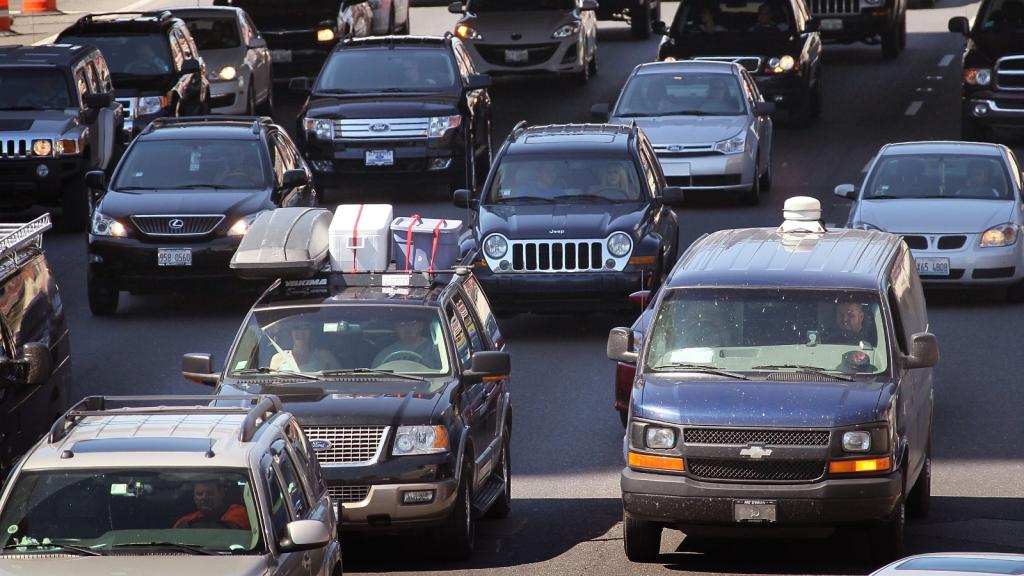Today’s second panel — Carl’s, on “conservation and the environment” — opened with remarks from Houston Mayor Bill White. Despite my earlier comments about the road-crazy Bayou City, Mayor White laid out some items from what appears to be a truly progressive energy agenda for Houston, including making it an international leader in green buildings.
Some of his more interesting comments came when White told the story of being one of the staffers that helped write the Energy Policy & Conservation Act of 1975, the original fuel economy law. He spoke of the doubling in fuel economy occasioned by the law, but then — in a story I’d never heard — spoke of trying to incorporate pickups and the forebears of today’s gas-guzzling SUVs into the law. Unfortunately, this provision was “hijacked,” as he put it, and became an exemption for so-called “work trucks,” even when they did nothing more than ferry suburban hausfraus around. Thankfully last year’s energy bill finally closed this disastrous SUV loophole.
White noted that he himself drives a car that gets 49 miles per gallon and while he’s happy about the big boost in CAFE, we “can do, shoulda done, and will do better.” He agreed that doubling our current fuel economy is “not a stretch” and could be done with technology that exists today. I was pleasantly surprised to hear that he’s switched over the vast majority of the city’s fleet of passenger vehicles and public buses to hybrids and is now looking to the other vehicles like garbage trucks.
The Mayor has also made a big commitment to green buildings, and said Houston would soon enact some of the most “progressive, far reaching” green building standards in the world. “Costs are the enemy” in business and reducing them through energy efficiency just makes good business sense, he added.
Finally, he noted that he was proud of Houston’s role in opposing TXU’s proposed coal-fired power plants, and proclaimed the need to delink economic growth from increasing electricity demand once and for all.
Following the local mayor in a ballroom filled with energy executives might seem an unenviable task for any environmentalist. However, Carl’s non-combative, straightforward assessment of market failures in the energy industry and the need to address them seemed to pleasantly surprise the assembled fossil forces.
I think Carl’s closing sums it up pretty well. I’ll do my best to paraphrase:
We still have an energy policy designed to suit the reality of the 1920s — a policy Thomas Edison himself would immediately recognize. In the 1920s, fuels were cheap, knowledge was sparse, and pollution was free. In the 21st Century, fuels are expensive, knowledge is abundant, and pollution is enormously costly. We must have energy policy designed for that reality. Hydrocarbon fuels are a precious resource. It’s time we started using them that way.
As Mayor White says, if the City of Houston can do it, any city in America should be able to.

